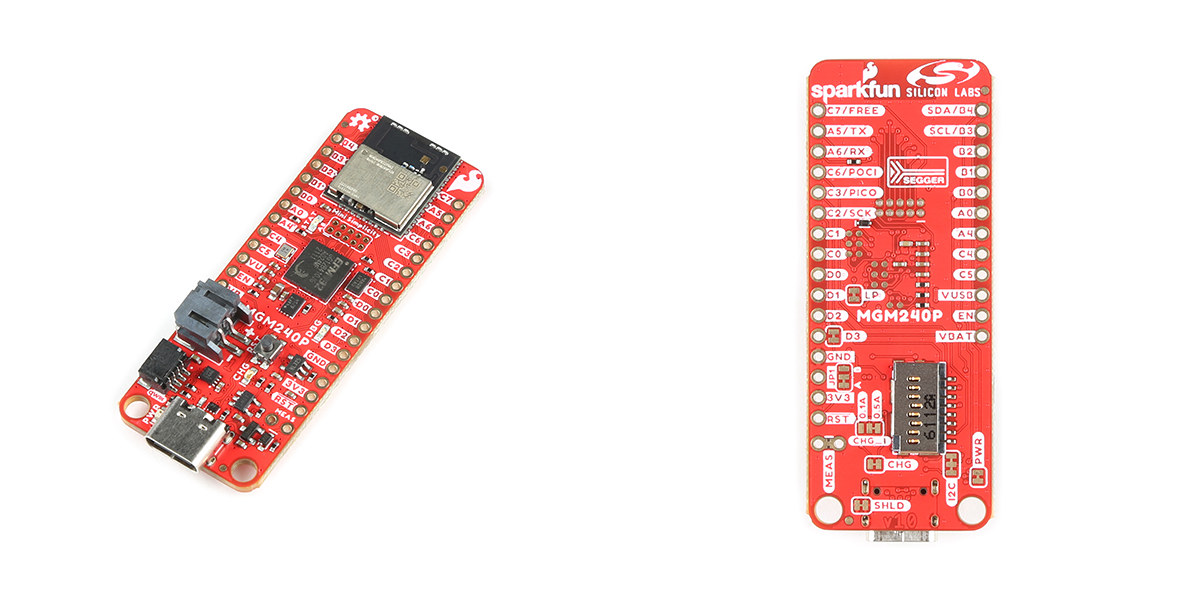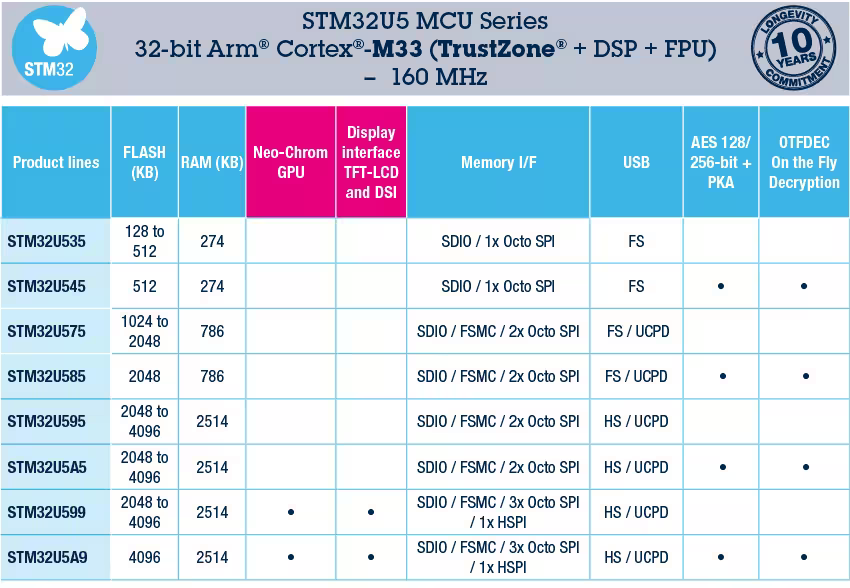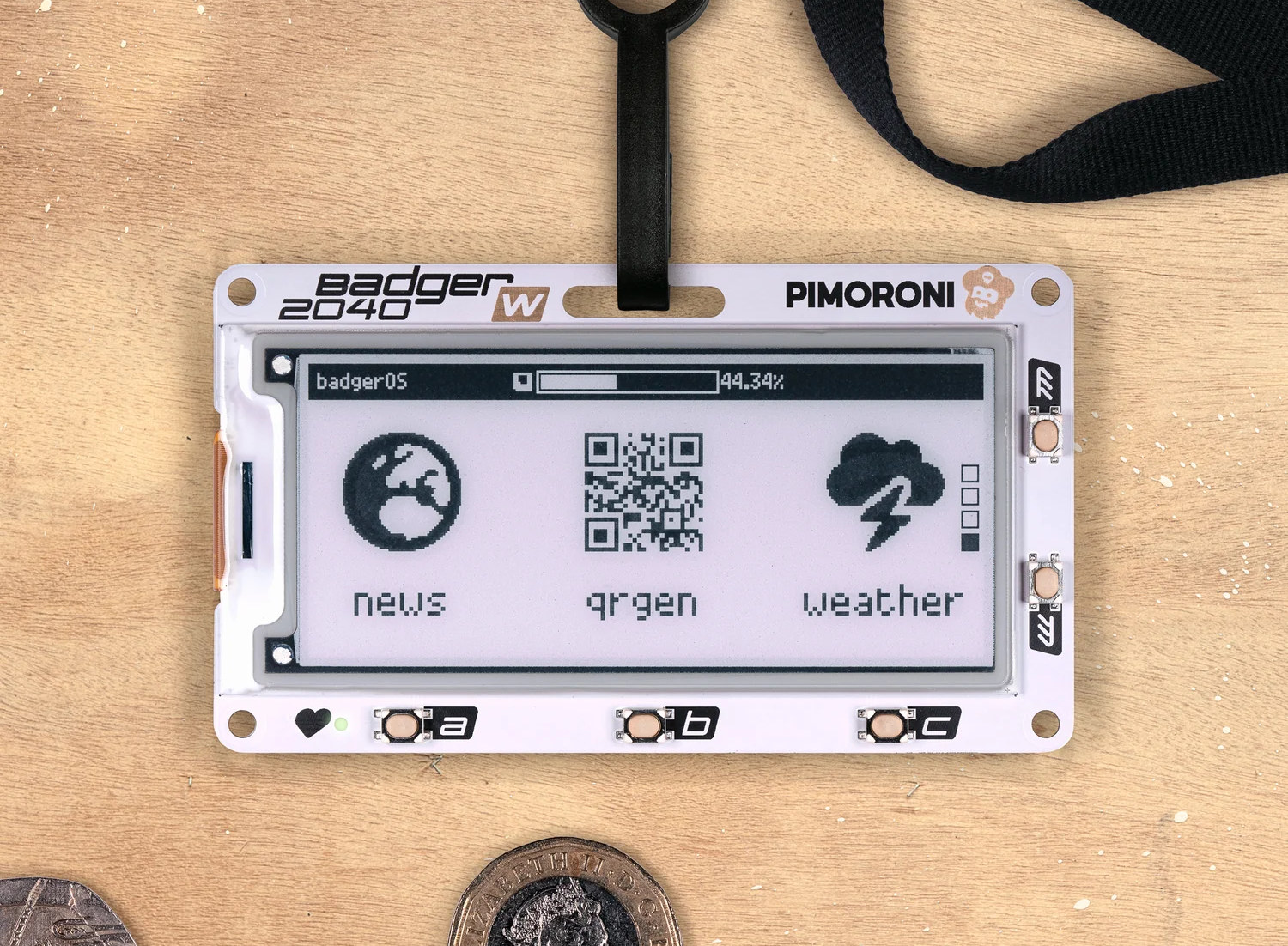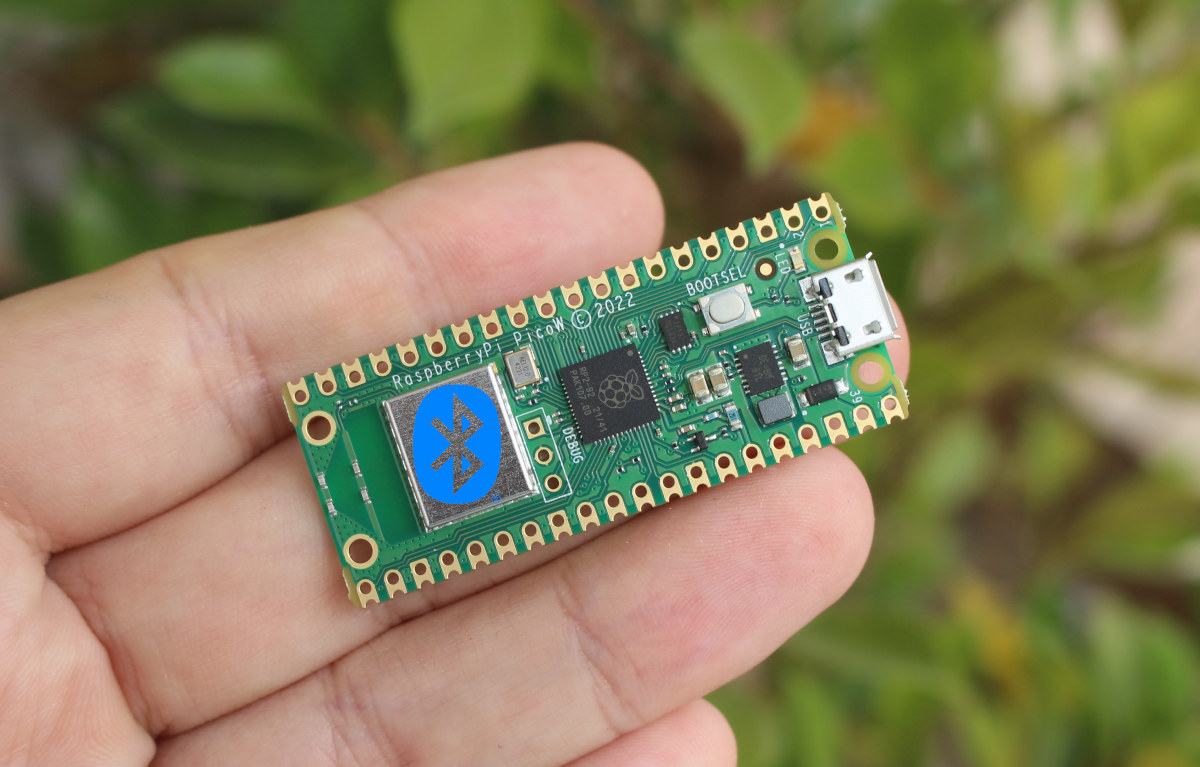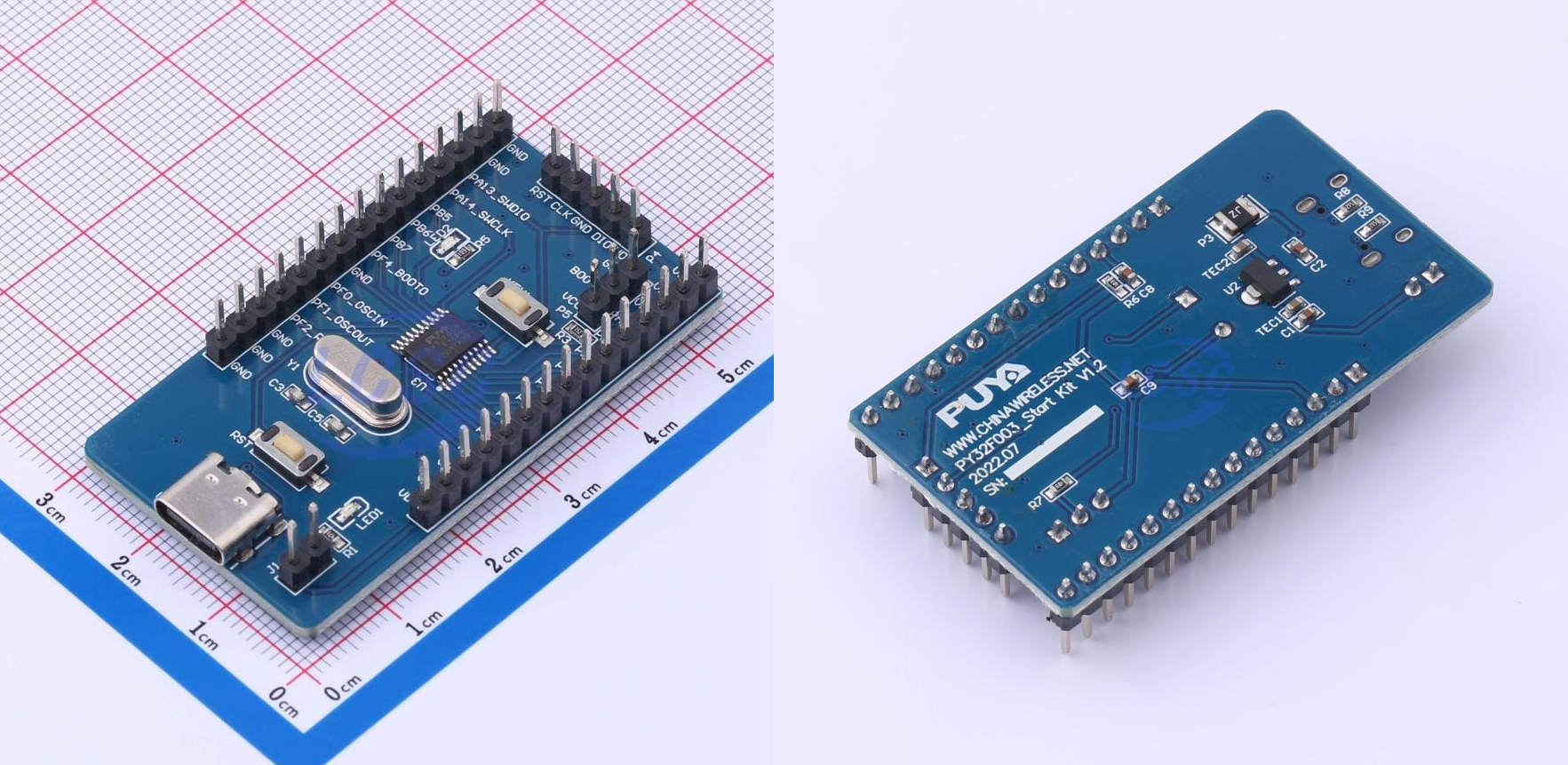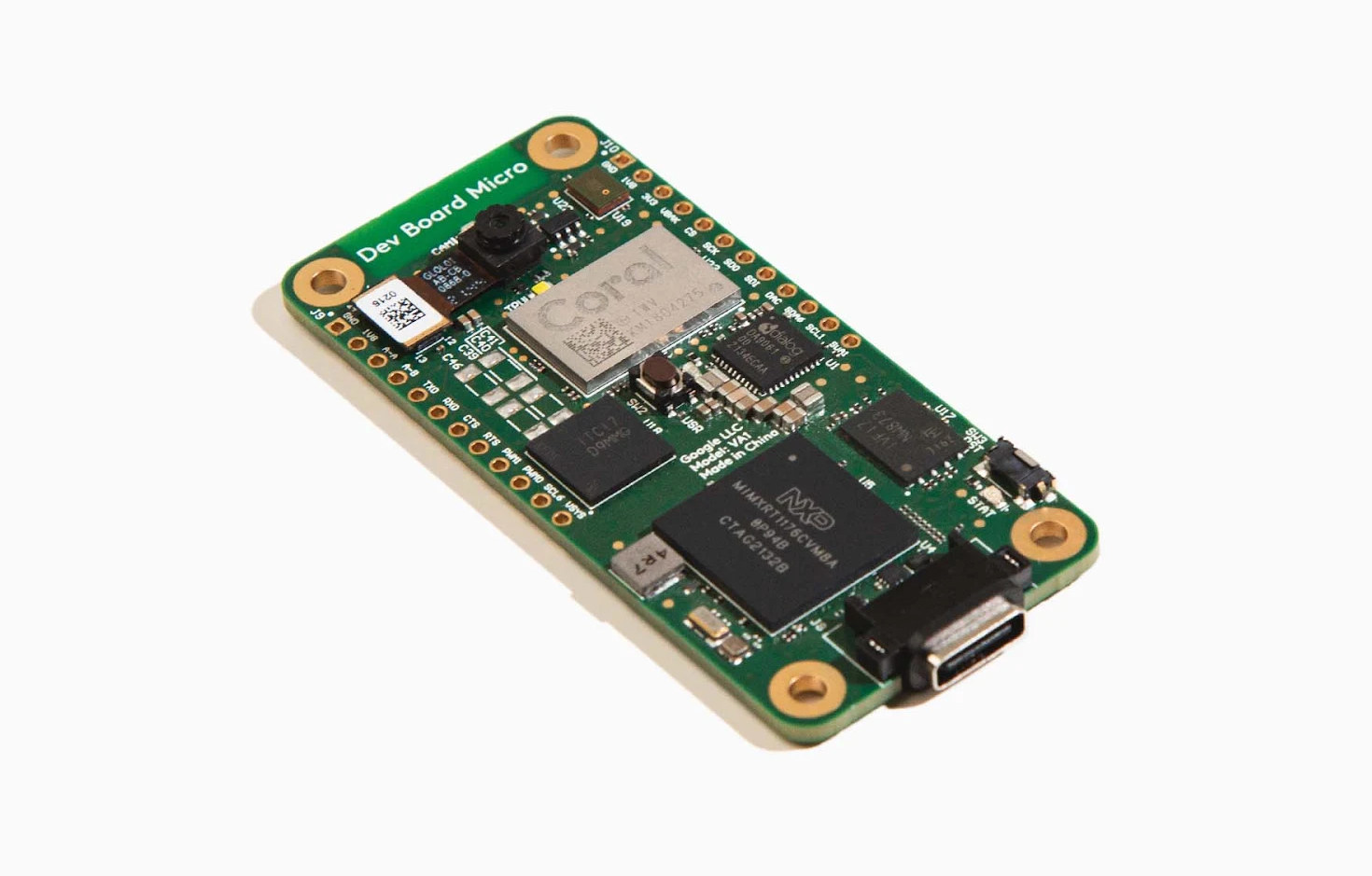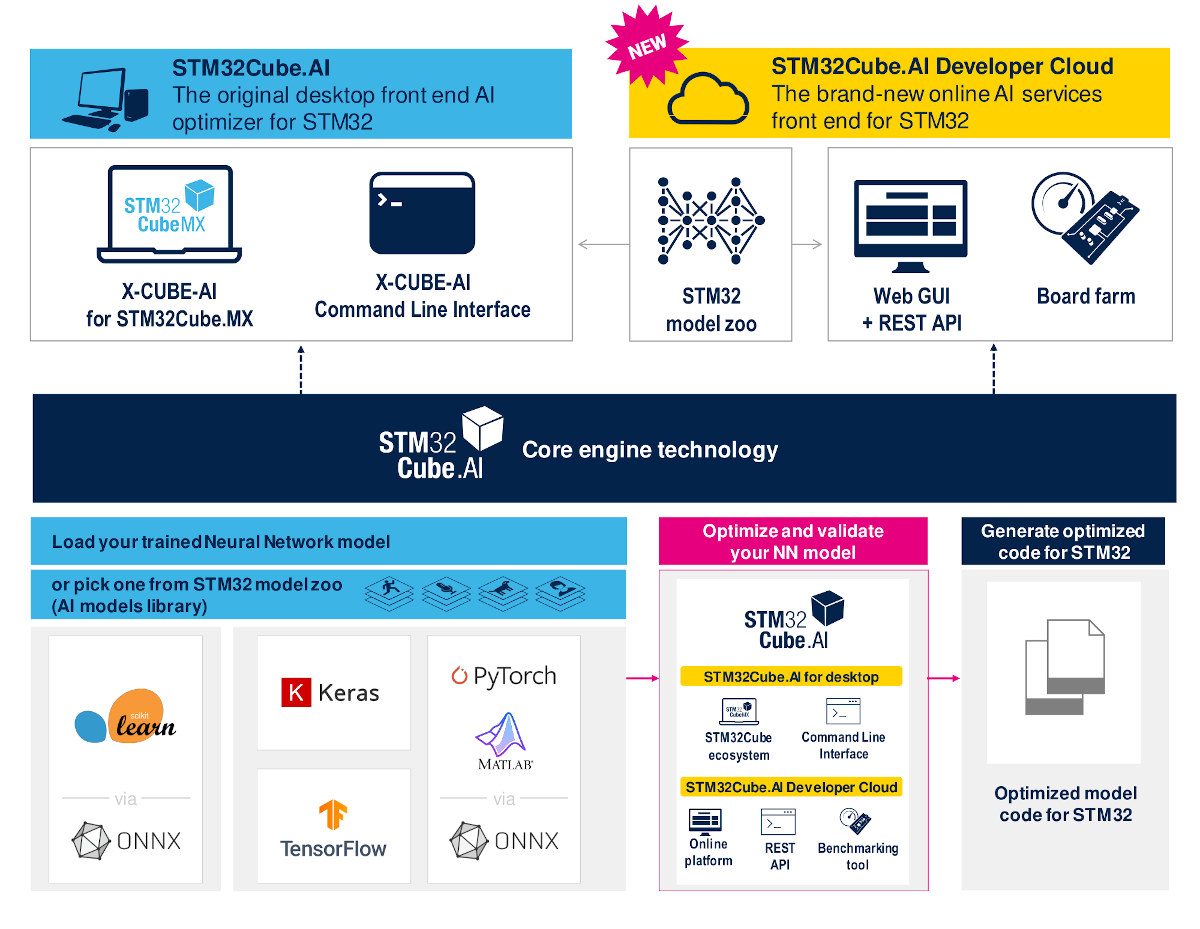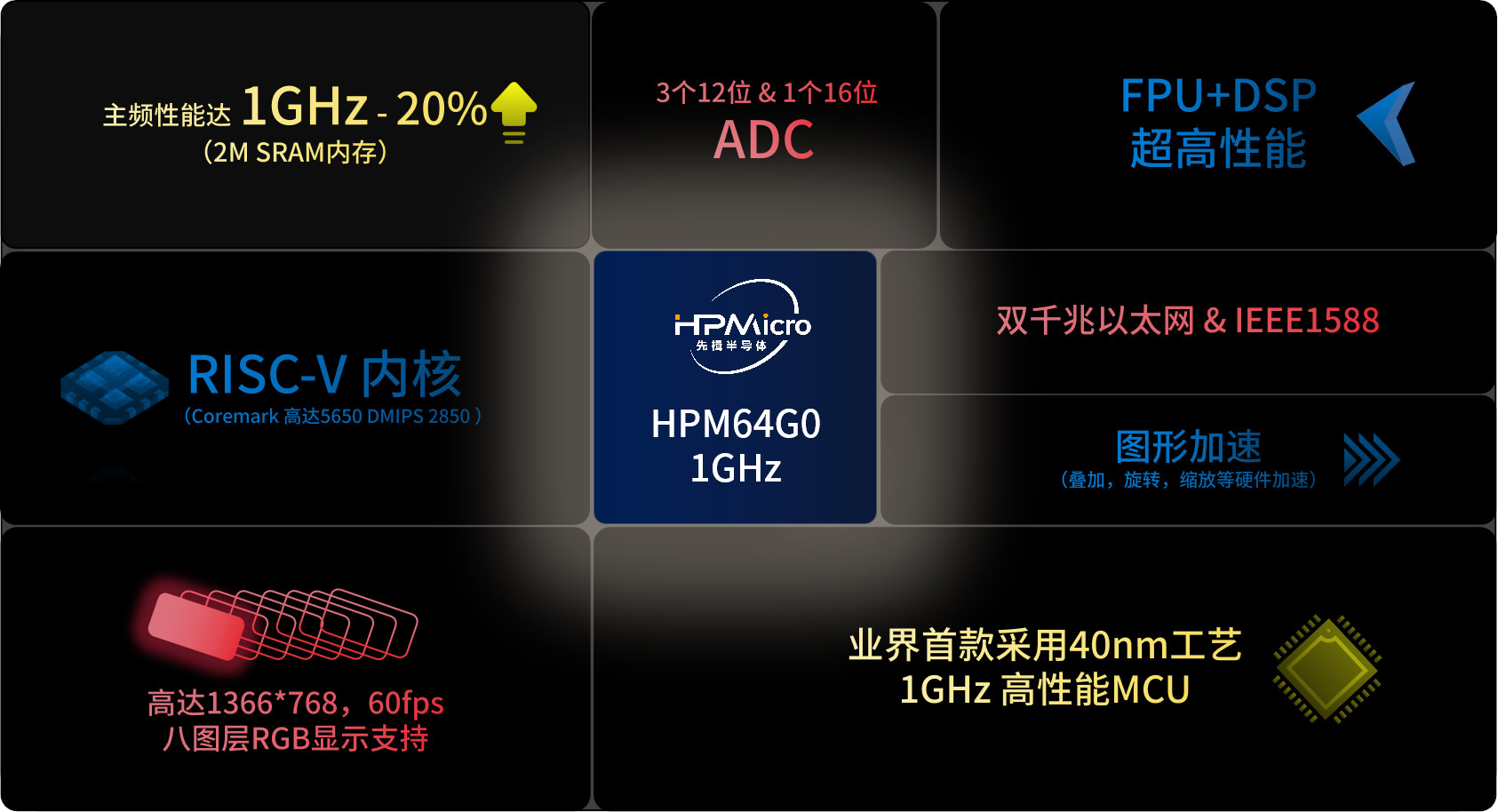SparkFun Thing Plus Matter – MGM240P board targets the development of applications using the Matter IoT protocol and features the MGM240P module based on Silicon Labs EFR32MG24 Arm Cortex-M33 wireless microcontroller with an 802.15.4 radio for Zigbee and OpenThread plus a Bluetooth Low Energy (BLE) 5.3 radio. The board also offers two rows of I/Os for upto 21 GPIOs and a Qwiic connector for expansion, another EFRM32 MCU acting as a J-link debugger, a microSD card, and can be powered via USB-C or a LiPo battery. SparkFun Thing Plus Matter – MGM240P specifications: MGM240P wireless module SoC – Silicon Labs EFR32MG24 microcontroller CPU – 32-bit Arm Cortex-M33 @ 39 MHz (MCU/module specs say up to 78 MHz, but maybe it’s clocked lower in this board for some reason, maybe lower power consumption?) Memory/Storage – 1536kB Flash Memory, 256kB RAM Wireless – 802.15.4 wireless protocols (Zigbee and OpenThread) and Bluetooth Low […]
STMicro adds more STM32U5 Cortex-M33 MCUs with NeoChrom 2.5D GPU, 128KB to 4MB flash, NIST certification, etc…
STMicro has added three new families to its STM32U5 Cortex-M33 microcontroller series with the entry-level STM32U535/545 with as little as 128KB flash, the STM32U595/5A5 with up to 4MB of Flash and 2,514KB of RAM, and the STM32U599/5A9 with similar features as the STM32U595/5A5 by adding the new NeoChrom 2.5D GPU plus TFT-LCD and DSI display interfaces. STMicro also announced that STM32U5 series MCUs were the first general-purpose MCUs to receive NIST-embedded random-number entropy source certification. As of now, along with the STM32U575/585 introduced in February 2021 with an optional Chrom-ART 2D GPU, STMicro offers eight product lines as part of the STM32U5 MCU series as shown in the table below. That means the STM32U5 microcontroller can address a wider range of applications with the STM32U535/545 targetting lower-cost applications with less flash and RAM, the “legacy” STM32U575/U585 for mid-range applications, and the STM32U59X/5AX for applications where more storage and memory is […]
Badger 2040 W e-Paper display gets WiFi & Bluetooth with Raspberry Pi Pico W
Pimoroni Badger 2040 W wireless programmable e-Paper badge comes with a 2.9-inch black & white E-Ink display and a Raspberry Pi Pico W board for WiFi (and Bluetooth) connectivity. It is an update to the Pimoroni Badger 2040 with the exact same display, but instead of using a Raspberry Pi RP2040 microcontroller, Pimoroni fitted a Raspberry Pi Pico W on the back of the board, probably to avoid going through FCC and CE certifications. Badger 2040 W specifications: MCU board – Raspberry Pi Pico W board with: Raspberry Pi RP2040 dual-core Arm Cortex M0+ running at up to 133Mhz with 264kB of SRAM Storage – 2MB QSPI flash Wireless – 802.11b/g/n WiFi 4 and Bluetooth Classic+LE with ABRACON onboard antenna (Infineon CYW43439 connected over SPI) Display – 2.9-inch B&W E-Ink display with 296 x 128 pixels resolution, ultrawide viewing angles, ultra-low power consumption; Dot pitch – 0.227 x 0.226 mm […]
Raspberry Pi Pico W gets Bluetooth support in SDK 1.5.0
The Raspberry Pi Pico W board was launched with a WiFi 4 and Bluetooth 5.2 module based on the Infineon CYW43439 wireless chip in June 2022, and I wrote a tutorial showing how to connect to WiFi a few days after the launch, but nothing about Bluetooth. That’s because while the Raspberry Pi Pico W hardware supports Bluetooth, we were told that Bluetooth was not enabled at the time, but might be at a later stage. Alasdair Allan, who is responsible for the Raspberry Pi documentation, said Bluetooth support was scheduled very soon, and the SDK 1.5.0 release of the Pico C SDK is now available with Bluetooth implemented using BTstack low footprint dual-mode Bluetooth stack. Bluetooth support is still considered Beta and the SDK 1.5.0 implements the following key features and updates: New libraries for Bluetooth Low Energy (LE) support. Bluetooth Classic support. Bluetooth Sub Band Coding (SBC) encoder […]
Meet Puya PY32 – The 8-cent Arm Cortex-M0+ microcontroller
Puya Semiconductor (Shanghai) PY32 Arm Cortex-M0+ microcontroller family may be the world’s cheapest 32-bit Arm MCUs with one of the parts – PY32F002AL15S6TU – selling for under 8 cents per unit in 5K+ orders with 3KB SRAM, 20KB flash in an 8-pin SOP-8 package. Back in 2016, when I searched for the world’s cheapest MCU, I found Holtek HT48R002 8-bit microcontroller, and a few years later (2019), Padauk PMS150C “3 Cents” MCU came to my attention. However, both are 8-bit microcontrollers that come with OTG (One-Time Programming) ROM, meaning they can’t be easily used for development or updated. The Puya PY32 microcontrollers are in the same price range but offer a 32-bit Arm Cortex-M0+ core clocked at 24 to 48MHz, 16KB to 64KB flash storage, and 2KB to 8KB SRAM. There are three PY32 sub-families, but let’s check out the PY32F002 family in detail since those are the cheapest parts. […]
Coral Dev Board Micro combines NXP i.MX RT1176 MCU with Edge TPU in Pi Zero form factor
Coral Dev Board Micro is the latest iteration of Google’s Edge AI devkit with an NXP i.MX RT1176 Cortex-M7/M4 crossover processor/microcontroller coupled with the company’s 4 TOPS Edge TPU, a camera, and a microphone in a board that’s about the size of a Raspberry Pi Zero SBC. The new board follows the original NXP i.MX 8M-based Coral Dev board that was introduced in 2019, and Coral Dev Board mini based on MediaTek MT8167S processor launched in 2020, and keeps with the trend of providing more compact solutions with lower-end host processors for edge AI. Coral Dev Board Micro specifications: MCU – NXP i.MX RT1176 processor with an Arm Cortex-M7 core @ up to 1 GHz, Cortex-M4 core up to 400 MHz, 2MB internal SRAM, 2D graphics accelerators; System Memory – 512 Mbit (64 MB) RAM Storage – 1 Gbit (128 MB) flash memory ML accelerator – Coral Edge TPU coprocessor […]
STM32Cube.AI Developer Cloud generates AI workloads for STM32 microcontrollers
STMicroelectronics has just announced the STM32Cube.AI Developer Cloud opening access to a suite of online AI development tools for the STM32 microcontrollers (MCUs) allowing developers to generate, optimize, and benchmark AI working on the company’s 32-bit Arm microcontrollers. The company sus the STM32Cube.AI Developer Cloud is based on the existing STM32Cube.AI ecosystem of desktop tools with the added benefit of being able to remotely benchmark models on STM32 hardware through the cloud in order to save on workload and cost. Some of the highlights of the online tools include: An online interface to generate optimized C-code for STM32 microcontrollers without requiring prior software installation. Access to the STM32 model zoo, a repository of trainable deep-learning models and demos. It currently features human motion sensing for activity recognition and tracking, computer vision for image classification or object detection, audio event detection for audio classification, and more. You’ll find those on GitHub […]
HPMicro HPM64G0 – A 1 GHz RISC-V microcontroller
Yesterday, I ended up on the HPMicro website showing the illustration above about a 1 GHz MCU called HPM64G0. It looked interesting enough so I clicked on the link to a page with some documentation for the company’s HPM6700/6400 microcontrollers. But in typical Chinese fashion, I was asked for a mobile phone number to download the documents. No luck this time since a Chinese mobile phone number is required. If anybody can set up a mirror on Mega or other websites easily accessible outside of China that would be appreciated. But eventually, I found an article in Chinese on EETrend where we can learn more about the HPM64G0 which happens to be a 1GHz microcontroller based on the RISC-V architecture. We already had one of those for Arm with the NXP i.MX RT1170, but I had yet to see any RISC-V microcontrollers clocked at such a high frequency. HPMicro HPM64G0 […]


